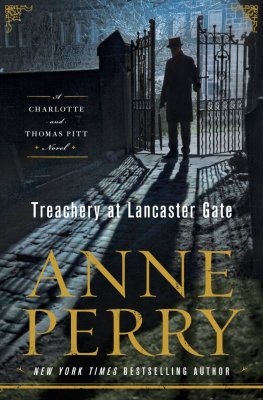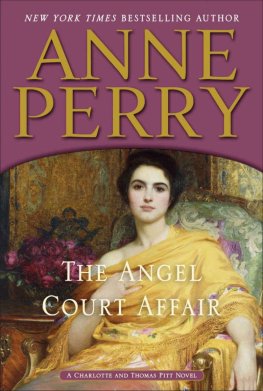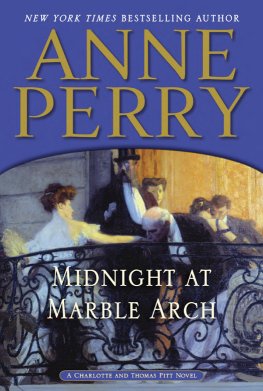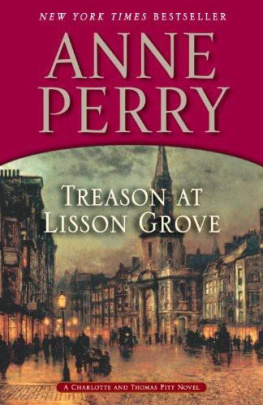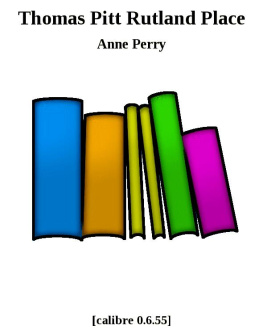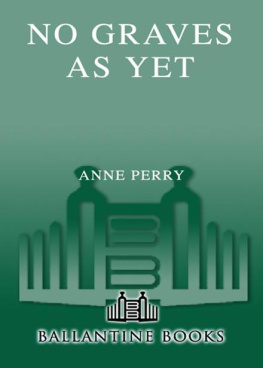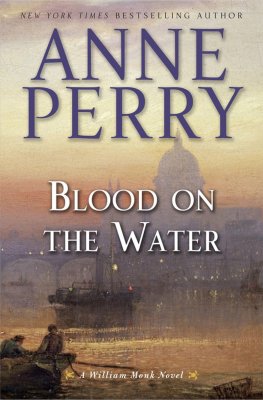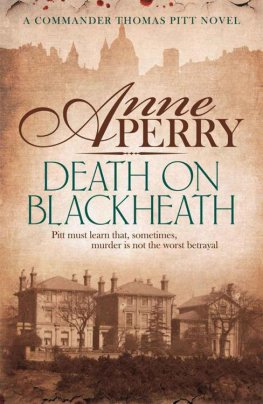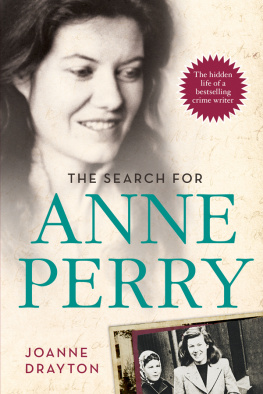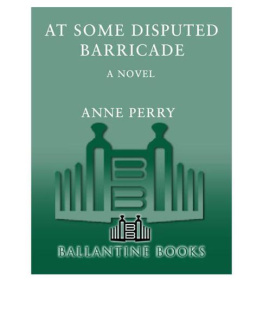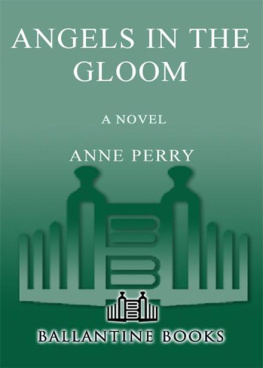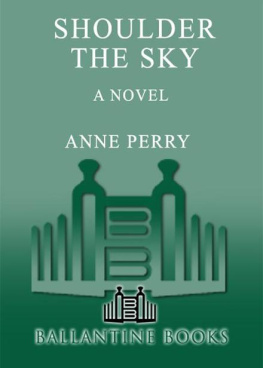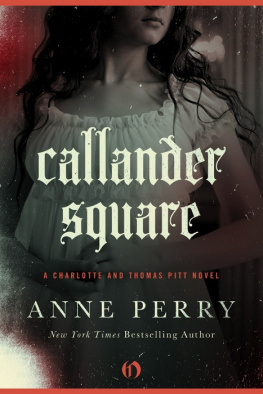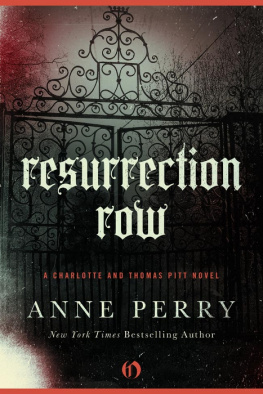Anne Perry - We Shall Not Sleep
Here you can read online Anne Perry - We Shall Not Sleep full text of the book (entire story) in english for free. Download pdf and epub, get meaning, cover and reviews about this ebook. year: 2007, publisher: Ballantine, genre: Detective and thriller. Description of the work, (preface) as well as reviews are available. Best literature library LitArk.com created for fans of good reading and offers a wide selection of genres:
Romance novel
Science fiction
Adventure
Detective
Science
History
Home and family
Prose
Art
Politics
Computer
Non-fiction
Religion
Business
Children
Humor
Choose a favorite category and find really read worthwhile books. Enjoy immersion in the world of imagination, feel the emotions of the characters or learn something new for yourself, make an fascinating discovery.

- Book:We Shall Not Sleep
- Author:
- Publisher:Ballantine
- Genre:
- Year:2007
- Rating:3 / 5
- Favourites:Add to favourites
- Your mark:
- 60
- 1
- 2
- 3
- 4
- 5
We Shall Not Sleep: summary, description and annotation
We offer to read an annotation, description, summary or preface (depends on what the author of the book "We Shall Not Sleep" wrote himself). If you haven't found the necessary information about the book — write in the comments, we will try to find it.
We Shall Not Sleep — read online for free the complete book (whole text) full work
Below is the text of the book, divided by pages. System saving the place of the last page read, allows you to conveniently read the book "We Shall Not Sleep" online for free, without having to search again every time where you left off. Put a bookmark, and you can go to the page where you finished reading at any time.
Font size:
Interval:
Bookmark:
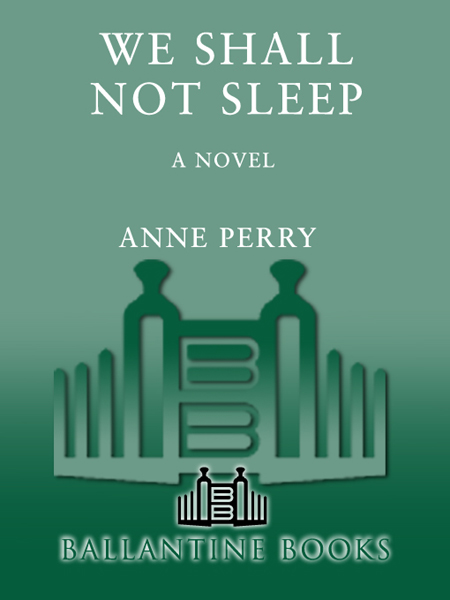
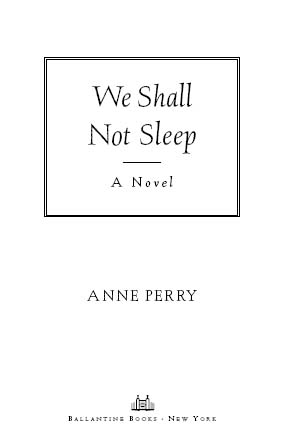
Contents
Take up our quarrel with the foe: To you from failing hands we throw The torch; be yours to hold it high. If ye break faith with us who die We shall not sleep, though poppies grow In Flanders fields.
John McCrae
CHAPTER

ONE
H ome for Christmas this year, Chaplain? Barshey Gee said with a wry smile. He turned his back to the wind and lit a Woodbine, then flicked the match into the mud at his feet. A couple of miles away in the gathering dusk the German guns fired desultorily. In a little while the shelling would probably get heavier. Nights were the worst.
Maybe. Joseph would not commit himself. In October 1914 they had all imagined that the war would be over in months. Now, four years later, the situation was dramatically different. Half the men he had known then were dead; the German army was in retreat from the ground it had taken, and Josephs Cambridgeshire regiment had advanced nearly as far as Ypres again. They might even make it tonight, so every man was needed.
They were waiting now, all around him in the gathering darkness, fidgeting a little, adjusting the weight of rifles and packs on their shoulders. They knew this land well. Before the Germans had driven them back they had lived in these trenches and dugouts. Friends and brothers were buried in the thick Flanders clay around them.
Barshey shifted his weight, his feet squelching in the mud. His brother Charlie had been mutilated and bled to death here shortly after the first gas attacks in the spring of 1915. Tucky Nunn was buried here somewhere, and Plugger Arnold, and dozens more from the small villages around St. Giles.
There was movement to his left, and to his right. They were waiting for the order to go over the top. Joseph would stay behind, as he always did, ready to tend the wounded, carry them back to the Casualty Clearing Station, sit with those whose pain was unbearable, and wait with the dying. His days were too often spent writing the letters home that told women they were widows. Lately the soldiers were younger, some no more than fifteen or sixteen, and he was telling their mothers how they died, trying to offer some kind of comfort: that they had been brave, liked, and not alone, that it had been quick.
In his pocket Josephs hand tightened over the letter he had received that morning from his sister Hannah at home in Cambridgeshire, but he refused to open it yet. Memories could confuse him, taking him miles from the present and scattering the concentration he needed to stay alive. He could not think of evening wind in the poplar leaves beyond the orchard, or across the fields the elms motionless against a sunset sky, starlings wheeling up and out, black fragments against the light. He could not allow himself to breathe in the silence and the smell of earth, or watch the slow tread of the plow horses returning along the lanes after the days work.
There were weeks to go yet, perhaps months, before it was over and those who were left could go back to a land that would never again be as they had left it.
More men were passing through the shadows. Allied trenches were dug more shallowly than the German ones. You had to keep your head down or risk being caught by sniper fire. The earthen floor was always muddy, though not as bad now as times he could remember when the ooze had been deep enough to drown a man, and so cold some actually froze to death. Many of the duckboards were rotted now, but the rats were still there, millions of them, some as big as cats, and the stench was always the samedeath and latrines. You could smell the line miles before you actually reached it. It varied from one place to another, depending on the nationality of the men who fought there. Corpses smelled differently according to the food the men had eaten.
Barshey threw away the last of his cigarette. Reckon well make Passchendaele again within the week, he said, looking at Joseph and squinting slightly in the last of the light.
Joseph said nothing, knowing no answer was expected. Memory held them together in wordless pain. He nodded, looked at Barshey for a moment, then turned to pick his way over the old duckboards and around the dogleg corner into the next stretch. All the trenches were built in a zigzag so that if the enemy did storm them, they could not take out a whole platoon with one burst. The wooden revetting that held back the crumbling walls was sagged and bulging.
Joseph reached Tiddly Wop Andrews just below the fire step. The young soldiers handsome profile with its quiff of dark hair was clear for a moment against the pale sky; then he ducked down again.
Evenin, Reverend, Andrews said quietly. He started to say something else, but the increasing noise drowned it out as a hundred yards to the left the machine guns started to chatter.
It was time for Joseph to go back to the Casualty Clearing Station, where he could be of use to the wounded as they were brought in. He passed other men he knew and spoke a word or two to them: Snowy Nunn, his white-blond hair hidden by his helmet; Stan Tidyman, grinning and whistling through his teeth; Punch Fuller, instantly recognizable by his nose; and Cully Teversham, standing motionless.
Like every regiment, the Cambridgeshires had originally been drawn from a small area: These men had played together in childhood and gone to the same schools. But with so many dead or wounded, remnants of many regiments had been scrambled together to make any kind of force. More than half the soldiers now going up and over the parapet into the roar of gunfire were almost strangers to him.
Joseph came to the end of the dogleg and turned into the connecting trench back toward the support line and the station beyond. It was dark by the time he reached it. Normally the station would not have been busy. The wounded were evacuated to the hospital as soon as they were fit to move, and the surgeons, nurses, and orderlies would be waiting for new casualties to be brought in. But with so many German prisoners pouring through the lines, exhausted, defeated, and many of them injured, there were still nearly twenty patients here.
In the distance more columns of soldiers were marching forward into the trenches. At the rate they were taking ground now, the front line would soon move beyond the old earthworks, abandoned in the retreat. In the open the casualties would be far worse.
Joseph began his usual work of helping with more minor injuries. He was busy in the General Admissions tent when Whoopy Teversham came to the open flap, his face frightened and smeared with blood in the lantern light.
Captain Reavley, youd better come. Theres two o the men beating a prisoner pretty bad. If you dont stop em theyre loike to kill im.
Joseph shouted for one of the orderlies to take over from him and followed Whoopy outside, almost treading on the mans heels. It took his eyes a moment to adjust to the dark; then he started running toward the pale outline of the Operating tent. The ground was rough, gouged into ruts and shallow craters by gun-carriage wheels and earlier shelling.
They were ahead of him, a group of half a dozen or so crowded togetherlightly wounded men on guard duty. Their voices were sharp and high-pitched. He saw them jostle closer, an arm swing in a punch, and someone stagger. A star shell went up and momentarily lit the sky, outlining them luridly for several seconds before it faded and fell. It gave him long enough to see the figure on the ground, half curled over with his face in the mud.
Next pageFont size:
Interval:
Bookmark:
Similar books «We Shall Not Sleep»
Look at similar books to We Shall Not Sleep. We have selected literature similar in name and meaning in the hope of providing readers with more options to find new, interesting, not yet read works.
Discussion, reviews of the book We Shall Not Sleep and just readers' own opinions. Leave your comments, write what you think about the work, its meaning or the main characters. Specify what exactly you liked and what you didn't like, and why you think so.

